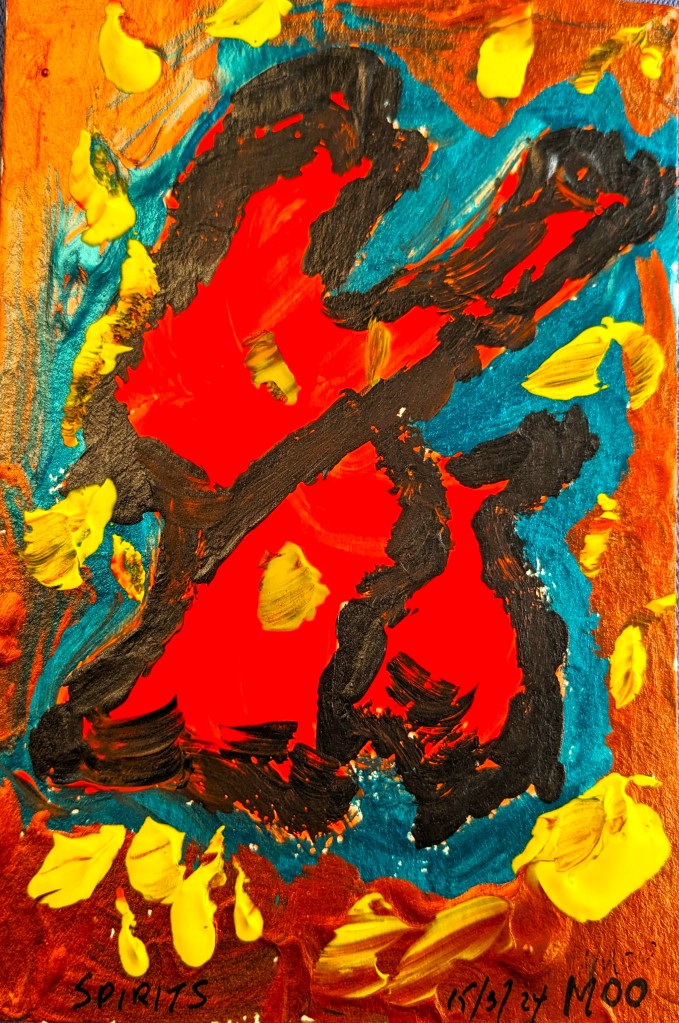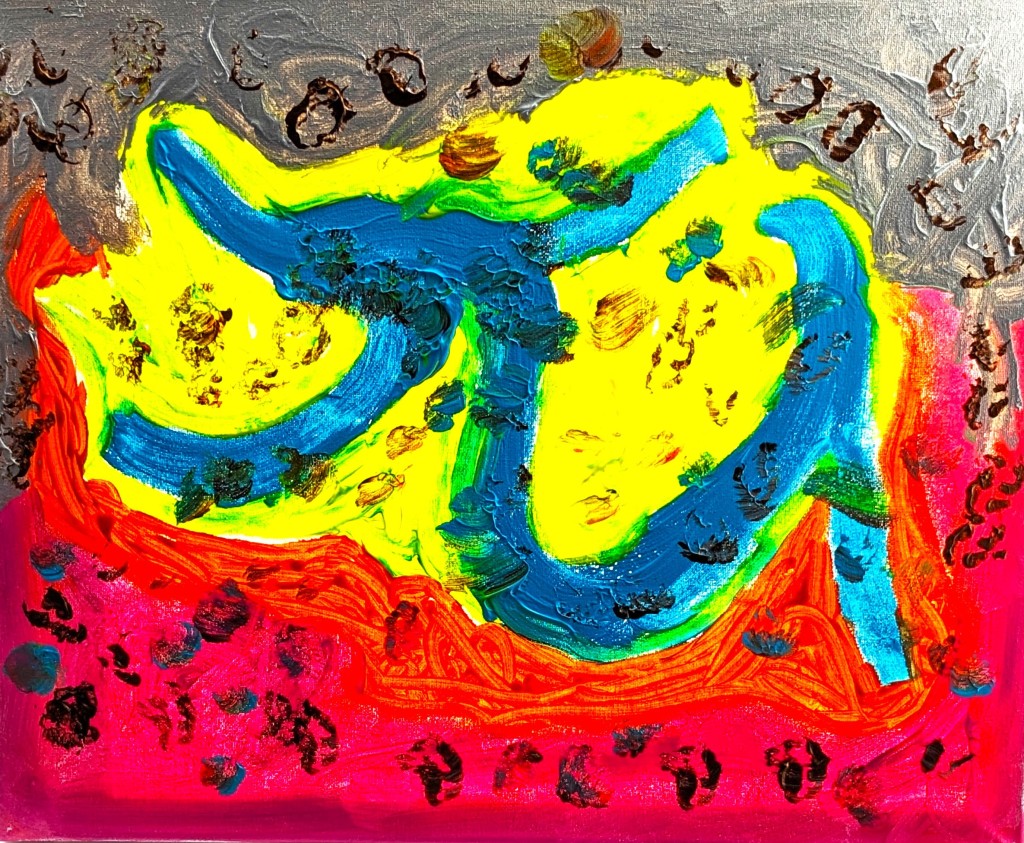
Solar Eclipse
(Devil’s Kitchen, PP. 118-120)
… with my angels … face to face … the ones I have carried within me since the day I was born … the grey-one … winged like a whisky jack who arrives in dreams… the white-one that hovers dove-like as I lie asleep … the multi-colored-one who wraps me in his feathered wings when I am alone and chilled by the world around me … the black-one who flaps with me on his back when I can walk no further and who creates the single set of footprints that plod their path through the badlands when I can walk no more …
… ‘the truth’ my black angel says to me … I say ‘he’ but he is a powerful spirit, not sexed in anyway I know it … and yet I think of him as ‘he’ …awesome in the tiny reflection he sometimes allows me to glimpse of his power and glory … for, like Rilke, I could not bear meeting his whole angelic being face to face … as I cannot bear the sun, not by day, and not in eclipse … not even with smoked glass … this is the moment of truth when human values turn upside down and earth takes on a new reality … wild birds and bank swallows roosting at three in the afternoon … and that fierce heat draining from the summer sky … I remember it well … and the dog whimpering as a portion of the angel’s wing erased the sun until an umber midnight ruled … a simple phenomenon, the papers said … the moon coming between the earth and the sun …but magic … pure magic … to we who stood on the shore at Skinner’s Pond and sensed the majesty of the universe … more powerful than anything we could imagine … and the dog … taking no comfort from its human gods … whimpering at our feet …
… during the eclipse I saw a single feather floating down and knew my angel had placed himself between me and all that glory … to protect me … to save me from myself … and I saw that snowflake of an angel feather bleached from black to white by some small trick of the sunlight … and knowledge filled me … and for a moment I felt the glory … the magnificence … and there are no words for that slow filling up with want and desire as light filters from the sky and the body fills with darkness … and I was so afraid … afraid of myself … of where I had been … of where I stood … of what I might return to … of my lost shadow … snipped from my heels …
… I don’t know how I heard my angel’s words … ‘the time of truth is upon you’ … ‘all you have ever been is behind you now’ … ‘naked you stand here on this shore’ … ‘like the grains of sand on this beach’ … ‘your days are numbered by the only one who counts’ … I heard the sound of roosting wings … but I heard and saw nothing more … I felt only midnight’s cold when the chill enters the body and the soul is sore afraid …
… ‘it is the law’ my angel said … I saw a second feather fall … ‘and the law says man must fail’ … ‘his spirit must leave its mortal shell and fly back to the light’ … ‘blood will cease to flow’ … ‘the heart will no longer beat’ … the spirit must accept the call and go’ … ‘do not assume’… ‘nobody knows what lies in wait’ … ‘blind acceptance’ … ‘the only way’ … ‘now’ … ‘in this twilight hour’ … ‘now when you are blind’ … ‘only the blind shall receive the gift of sight’ … ‘all you have’ … ‘your wife’ … ‘your house’ … ‘your car’ … ‘your child’ … ‘everything you think of as yours’ … ‘I own’ … ‘and on that day’ …’ I will claim it from you and take it for my own’ … ‘now I can say no more’ …
… the sea-wind rose with a sigh and one by one night’s shadows fled … the moon’s brief circle fell away from the sun … light returned, a drop at a time, sunshine flowing from a heavenly clepsydra filled with light …
after the eclipse … birds ceased to circle … a stray dog saw a sea-gull and chased it back to sea … and the sun … source of all goodness … was once again a golden coin floating in the sky …
… on my shoulder a feather perched … a whisper of warmth wrapped its protective cloak around my shoulders … for a moment, just a moment, I knew I was the apple of my angel’s eye … and I knew that one day I would meet him again … and understand …

Devil’s Kitchen
Short Stories and Flash Fiction
Click here to purchase this book.








